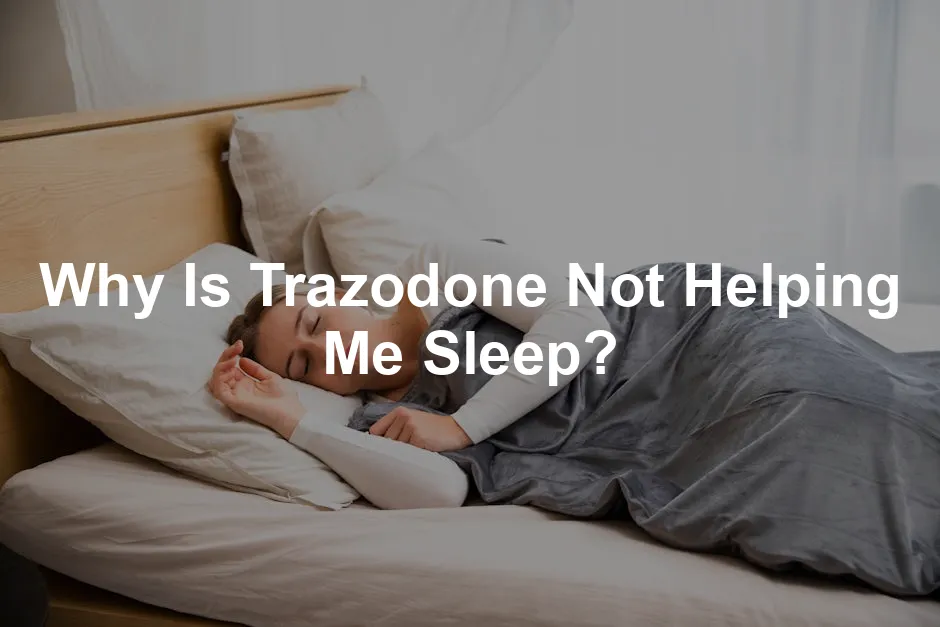
Why Is Trazodone Not Helping Me Sleep?
Introduction
In this blog post, we will explore the reasons why trazodone, a medication commonly prescribed for sleep issues, may not be providing the expected relief for some individuals. By understanding the mechanisms of trazodone, potential interactions, and individual health factors, readers can gain insights into their sleep challenges and consider alternative solutions.
Speaking of alternative solutions, if you’re struggling with sleep, a Sleep Sound Machine can be a game-changer. It helps create a soothing sound environment that can drown out distractions and promote a more peaceful sleep experience.
Summary and Overview
Trazodone is primarily an antidepressant, but it has gained popularity as a sleep aid. Its sedative properties make it appealing for those struggling with insomnia. However, it is important to recognize that trazodone may not work for everyone. Understanding why trazodone may not be effective can help individuals tailor their treatment. Several factors can influence its effectiveness, such as dosage, drug interactions, and individual health conditions. For instance, the right dosage is crucial; too low may not help, while too high can cause grogginess. Additionally, interactions with other medications, alcohol, or even herbal supplements can diminish its effects. Health conditions like sleep apnea or restless leg syndrome can also interfere with its efficacy. Consulting a healthcare provider is vital for personalized treatment options, as they can guide you in finding the most suitable solution for your sleep issues.
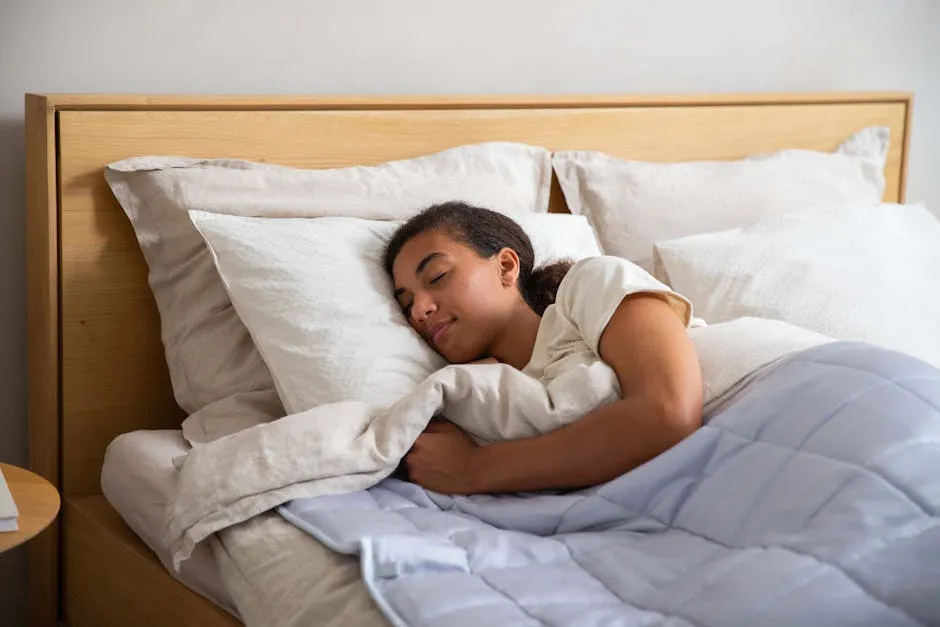
If you’re looking for a natural way to enhance your sleep, consider trying Herbal Sleep Tea. It’s a delightful way to wind down your day and prepare your body for a restful night.
Understanding Trazodone and Its Mechanism of Action
What is Trazodone?
Trazodone is classified as a serotonin antagonist and reuptake inhibitor (SARI). It was initially developed as an antidepressant in the 1960s and has since been prescribed for sleep disorders. This medication influences serotonin levels in the brain, which are crucial for mood and sleep regulation.
How Does Trazodone Work?
Trazodone primarily works by blocking the reuptake of serotonin, allowing it to remain in the brain longer. This action helps improve mood and promotes relaxation. Additionally, trazodone antagonizes specific serotonin receptors, enhancing its sedative effects. This makes it effective for inducing sleep in some individuals. However, its impact on sleep cycles can vary. It may help with initial sleep onset but might not significantly improve overall sleep quality or duration. Understanding these mechanisms can shed light on why trazodone may not work effectively for all users.

If you’re looking to improve your sleep environment, consider investing in a Weighted Blanket. These blankets can provide a comforting hug that helps reduce anxiety and promote better sleep.
Reasons Trazodone May Not Be Helping
Incorrect Dosage of Trazodone
Finding the correct dosage of trazodone is essential for effective sleep. If the dose is too low, it may not promote sleep adequately. On the other hand, overdosing can lead to excessive grogginess and diminish sleep quality. Many users report feeling drowsy but struggle to maintain restful sleep. It’s crucial to work closely with your healthcare provider to determine the optimal dose tailored to your needs. Adjustments may be necessary over time, especially if you notice changes in effectiveness.
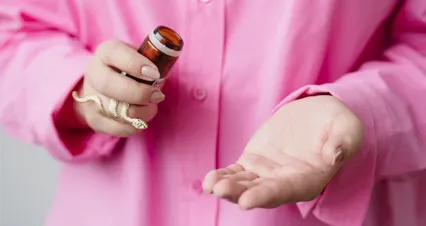
To help with your sleep journey, consider a Sleep Mask. It can block out unwanted light and create a serene environment for slumber.
Other Medications and Substances Interference
Trazodone can interact with various medications and substances, potentially reducing its effectiveness. For instance, medications like benzodiazepines or certain antidepressants can amplify trazodone’s sedative effects, leading to unwanted drowsiness. Alcohol, too, can heighten these effects, making it harder to function during the day. Even common over-the-counter medications or herbal supplements can interfere with trazodone. Always inform your doctor about any other substances you are taking to avoid negative interactions.

Individual Biological Factors
Each person’s biology significantly impacts how trazodone works. Genetic differences can alter the way individuals metabolize medications, impacting how effective trazodone is for sleep. Additionally, underlying health conditions like sleep apnea or restless leg syndrome can hinder trazodone’s effectiveness. These conditions may require specific treatments that address the root causes of sleep disturbances. It’s vital to discuss any existing health issues with your healthcare provider to tailor your treatment plan effectively.
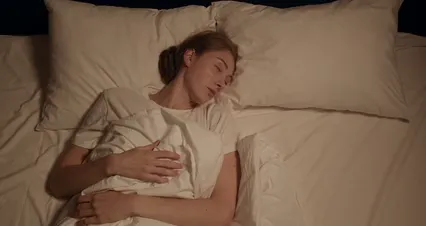
For a holistic approach to sleep, consider adding an Essential Oil Diffuser to your nighttime routine. Scents like lavender can promote relaxation and help prepare your mind for sleep.
Development of Tolerance
Over time, some individuals may develop a tolerance to trazodone. This means that the same dosage may become less effective as your body adapts to the medication. Signs of tolerance may include needing a higher dose to achieve the same sedative effects or experiencing shorter sleep duration. If you suspect that tolerance is affecting your sleep, consult your healthcare provider. They can help assess your situation and suggest alternative options or adjustments to your treatment regimen.
Lifestyle Factors Impacting Sleep
Your daily habits play a big role in your sleep quality. What you eat, how much you move, and your bedtime routine can all influence how well you sleep.

To support your sleep, consider incorporating Magnesium Supplements into your routine. Magnesium can help regulate sleep hormones and improve overall sleep quality.
The Role of Diet, Exercise, and Sleep Hygiene
Eating a balanced diet can promote better sleep. Foods rich in magnesium, like almonds and spinach, can help. Avoid heavy meals close to bedtime, as they can disrupt sleep. Also, limit caffeine intake, especially in the afternoon. For more insights on dietary changes, you can read about why did they change diet dr pepper flavor.

Understanding dietary impacts on sleep is essential. Learn more about dietary changes.
Regular exercise is another key factor. Aim for at least 30 minutes of moderate activity most days. Physical activity can help you fall asleep faster and enjoy deeper sleep. However, try not to exercise right before bed, as it may keep you awake.

Sleep hygiene refers to the practices that promote good sleep. Create a calming bedtime routine, such as reading a book or taking a warm bath. Ensure your sleep environment is cool, dark, and quiet. Consider using blackout curtains or white noise machines to enhance your sleep space.
Discussion of Stress and Anxiety Management
Stress and anxiety can create significant barriers to restful sleep. If your mind races at night, it’s essential to find ways to manage these feelings. Techniques such as mindfulness, meditation, or deep-breathing exercises can be beneficial.

Keeping a journal can also help you process your thoughts. Write down any worries before bed to clear your mind. If stress and anxiety persist, consider speaking with a mental health professional. They can provide strategies tailored to your needs, improving both your mental health and sleep quality. You might also find a Mindfulness Journal helpful for tracking your thoughts and progress.
When to Consult a Healthcare Provider
If you find that trazodone isn’t helping you sleep, it’s crucial to consult a healthcare provider. Persistent sleep issues can indicate underlying health problems. For instance, conditions like sleep apnea or restless leg syndrome may require specific treatments beyond medication.

Discussing your concerns about trazodone is also essential. Your doctor can evaluate your current dosage and assess any potential interactions with other medications. Additionally, if you experience side effects that impact your daily life, it’s important to seek professional advice. Remember, your healthcare provider can guide you toward alternative treatments that may be more effective for your sleep challenges. Taking proactive steps now can lead to better sleep and improved overall health.
For those interested in natural sleep aids, consider Aromatherapy Sleep Pillow Spray. A few spritzes can create a calming atmosphere, making it easier to drift off into dreamland.
Conclusion
In conclusion, while trazodone may provide relief for some individuals, it is not a one-size-fits-all solution for sleep issues. Factors such as dosage, interactions, biological differences, and lifestyle choices can significantly impact its effectiveness. If you find yourself struggling with sleep despite taking trazodone, it’s essential to explore other options. Consulting with healthcare professionals can help you identify the root causes of your sleep disturbances and lead you to alternative treatments. Remember, finding an effective solution may take time, but investing in your sleep health is always worthwhile.
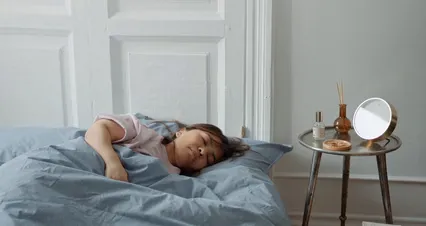
For those cozy nights, don’t forget the comfort of Cozy Slippers to keep your feet warm while you relax before bed.
FAQs
What should I do if trazodone is not working for me?
If trazodone isn’t helping you sleep, don’t hesitate to consult your healthcare provider. They can evaluate your situation and consider adjustments to your treatment plan. Sometimes a dosage change may be needed. Other times, it might be beneficial to explore alternative medications or therapies. Open communication about your sleep issues is essential for finding the right solution.
Are there any risks associated with taking trazodone for sleep?
Yes, trazodone can have side effects. Common side effects include dizziness, dry mouth, and daytime drowsiness. Serious risks, although rare, include abnormal heart rhythms and priapism, a painful prolonged erection. Always discuss any concerns with your healthcare provider to ensure trazodone is safe for you.
How long does it take for trazodone to work for sleep?
Trazodone typically takes about 30 minutes to induce sleep. However, individual responses can vary. Some people may find it effective right away, while others might need a few days to notice improvements. Regular follow-ups with your healthcare provider can help track its effectiveness over time.
Can I take trazodone with other medications?
It’s crucial to discuss all medications you’re taking with your healthcare provider. Trazodone can interact with various drugs, including certain antidepressants and sedatives. These interactions can affect how well trazodone works or increase the risk of side effects. Always keep your doctor informed about your complete medication list.
What are some natural alternatives to trazodone for sleep?
If trazodone isn’t effective, consider natural remedies such as melatonin or valerian root. Cognitive Behavioral Therapy for Insomnia (CBT-I) is another effective non-pharmacological approach. This therapy focuses on changing sleep habits and thought patterns that contribute to insomnia. Always discuss with your healthcare provider before trying any new treatment options.
Please let us know what you think about our content by leaving a comment down below!
Thank you for reading till here 🙂
All images from Pexels




